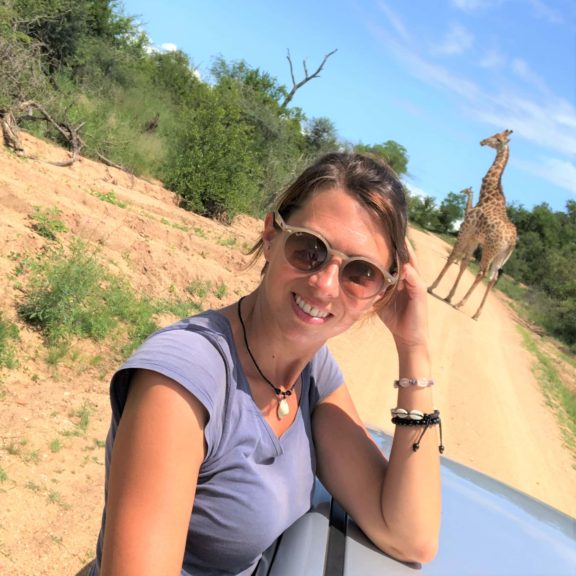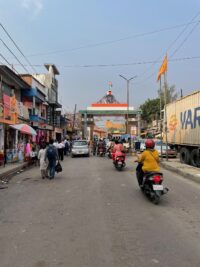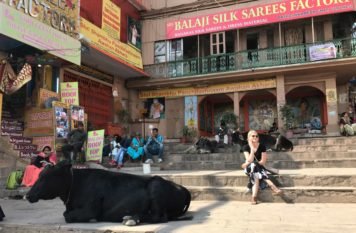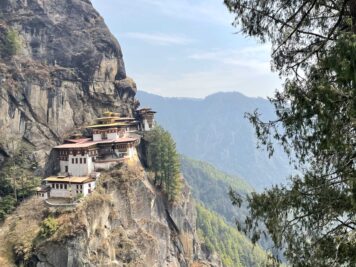We spent five days in the Bijagos Archipelago relaxing on the beaches. We went running, and chilled out poolside at a gorgeous place we treated ourselves to on Rubane.
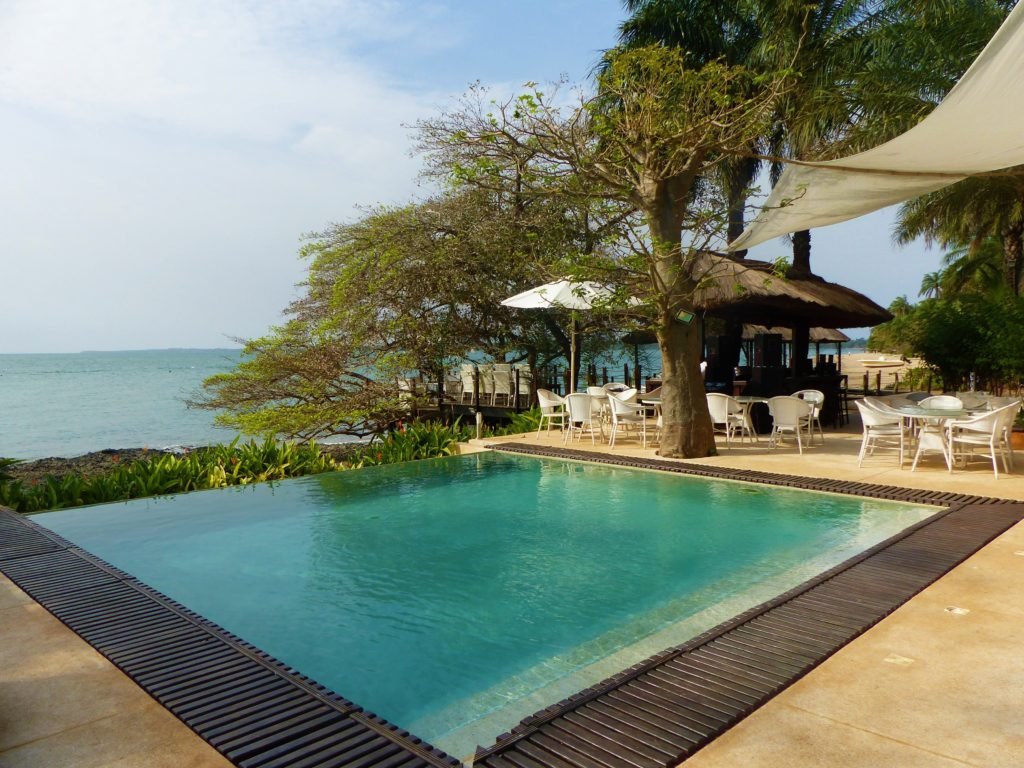
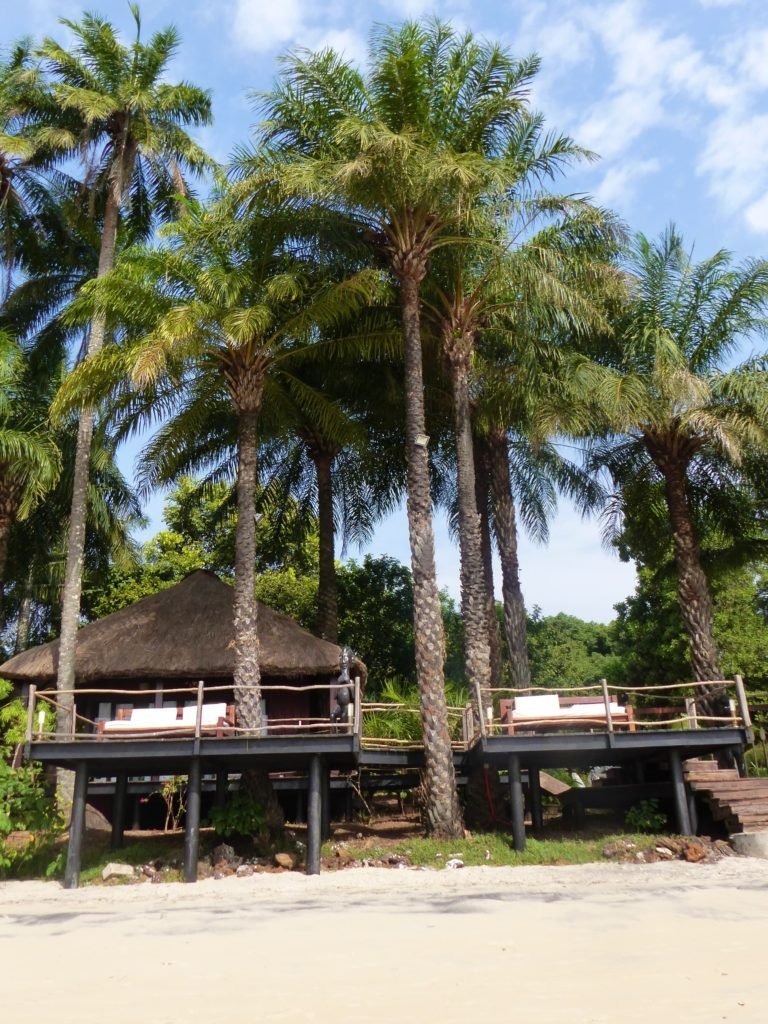
While we were at it, we fortified ourselves with fabulous three course fish and seafood dinners. One night we saw another couple served an enormous fish whole, on a platter. It was huge.

We assumed that they pre-ordered it and the hotel staff had swum out specially and harpooned it. But as it turned out, the giant fish was the regular main course that night and I had in fact ordered it as well.
These kind of misunderstandings are just a regular part of our days here. We cycle through repetitions of the same words until we land on the right translation. For example, we want milk for our coffee:
Oyv: Can we have some leche por favour?
Server: (looks vaguely mystified)
Oyv (realising that was Spanish): I mean lait of course.
Sar: No….that’s French.
Oyv: What is it in Portuguese? (Shrugs, mimes milking a cow.)
Sar: Grazie.
Server: (looks vaguely offended)
One morning as we ate our breakfast on a stilted platform overlooking the beach, we noticed three soldiers grouped around a table nearby and a police boat floating not far from shore. They were there to keep an eye on the elegant group of locals in national costume we’d seen the night before having drinks by the pool – an envoy of the President’s, scoping out the islands. This group did not of course come by the public boat – I am pretty sure we are the first visitors to this hotel ever, to have come by the public boat judging by the reaction we got from the entire staff and several expats when we said so – and we watched as two of the dignitaries were carried from the shore to the boat by the waiter.

It was definitely a T.I.A (This Is Africa) moment.
Done with the lazing around, we were rested and ready to move on. We went to Gabu, the last major town before the border where we planned to cross into Guinea and carry on to a town there called Labe. As I’ve mentioned before, travelling in Guinea-Bissau is complicated, and getting out of Guinea-Bissau is no exception. We asked around in Gabu’s busy market and heard a lot of differing opinions as to when – or if – any vehicle would leave for Labe. It sounded like we’d need to patch the trip together by changing cars at the border and in several other towns along the way. It sounded like a huge pain, even to us.
Dejected at the idea of being stranded in Gabu for life, we sat down for a beer and met two Nigerians named Eik and Mohammed (‘My name is Mohammed, but I am not Boko Haram’). We spent the evening having drinks with these two and several of their friends at a sort of by-the-hour hotel and they assured us that we’d find direct transport to Labe in the morning.
So, we decided on a plan of action. Or rather, inaction: we’d wait at the station for the ‘direct’ sept-place meant to go all the way to Labe. So we got up at 6 am and went back to the empty marketplace. We watched as it slowly came alive and filled with people cooking and selling food; men hawking tickets and loading luggage; and women threading their way through the crowds, selling hardboiled eggs and bananas from the heaped platters balanced on their heads, children playing underfoot.
We waited…and we waited some more, as the car slowly filled up with passengers and luggage.
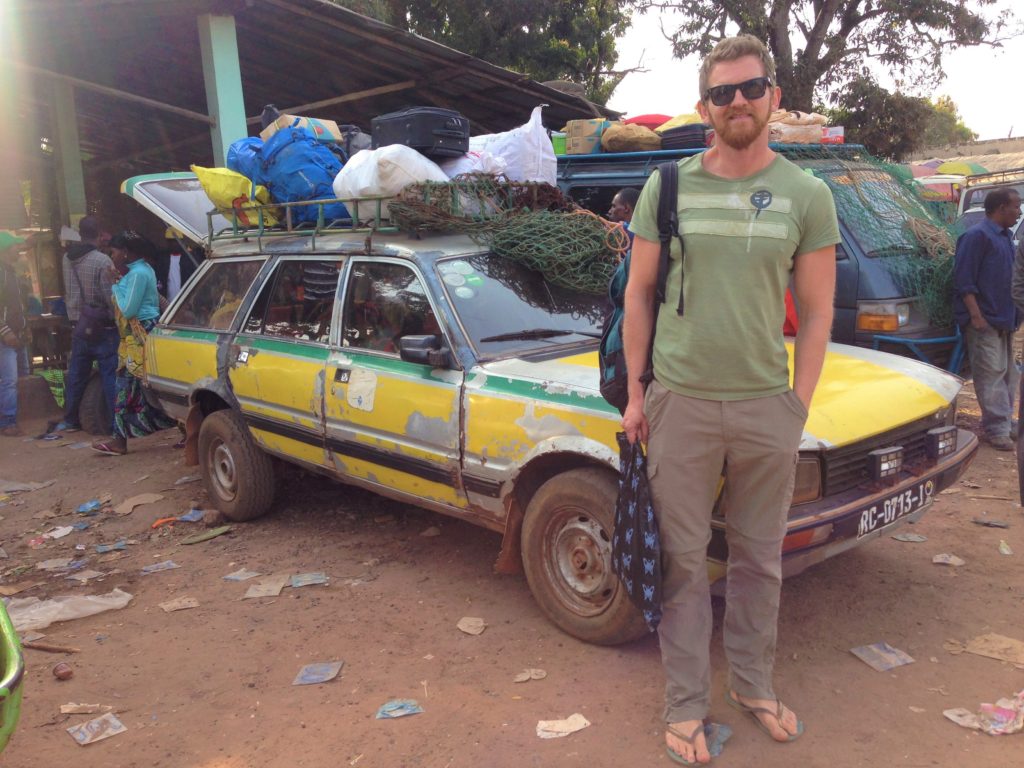
Since we’d be crossing the border into Guinea the driver was not waiting for just the ‘standard’ seven passengers. No, we learned that in Guinea there are no rules governing transport – anything goes – and so the driver was not satisfied until he had the car packed with ten adults and four kids. At about 1pm, we finally set off and crossed the border. But not without a minor breakdown within the first half hour, of course.
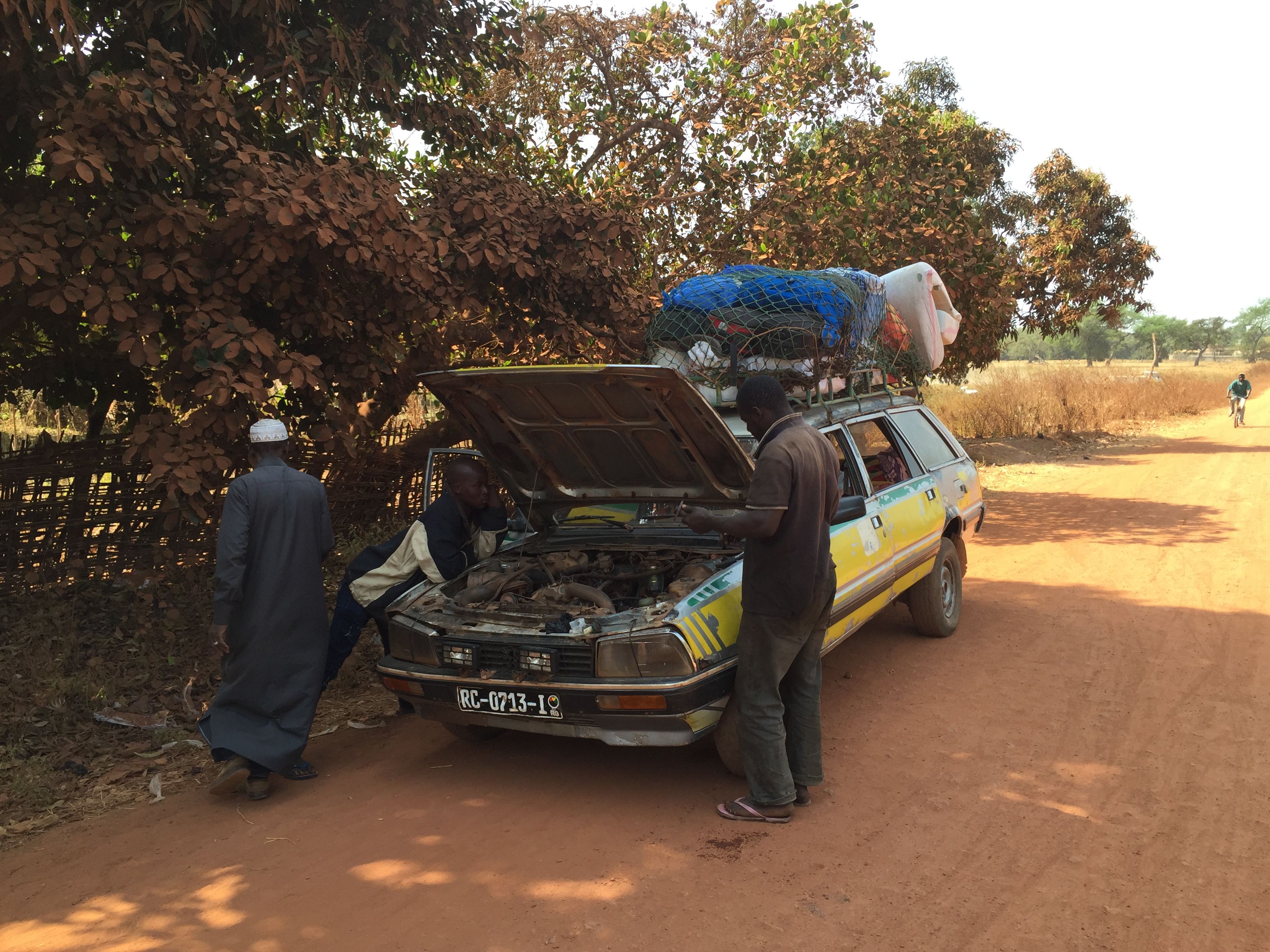
We have a few rules for travelling in Africa that we generally stick to, like riding inside of a vehicle as opposed to clinging to the roof, and our cardinal rule is to try and avoid the roads at night. It was 6pm and darkness was closing in around us slowly. But with only about 250 kilometers remaining, as we pulled out onto a smooth paved road our spirits lifted and we thought, if we keep this speed, we’ll be in Labe in just a few hours. And then the driver pulled over and detoured into the bush.
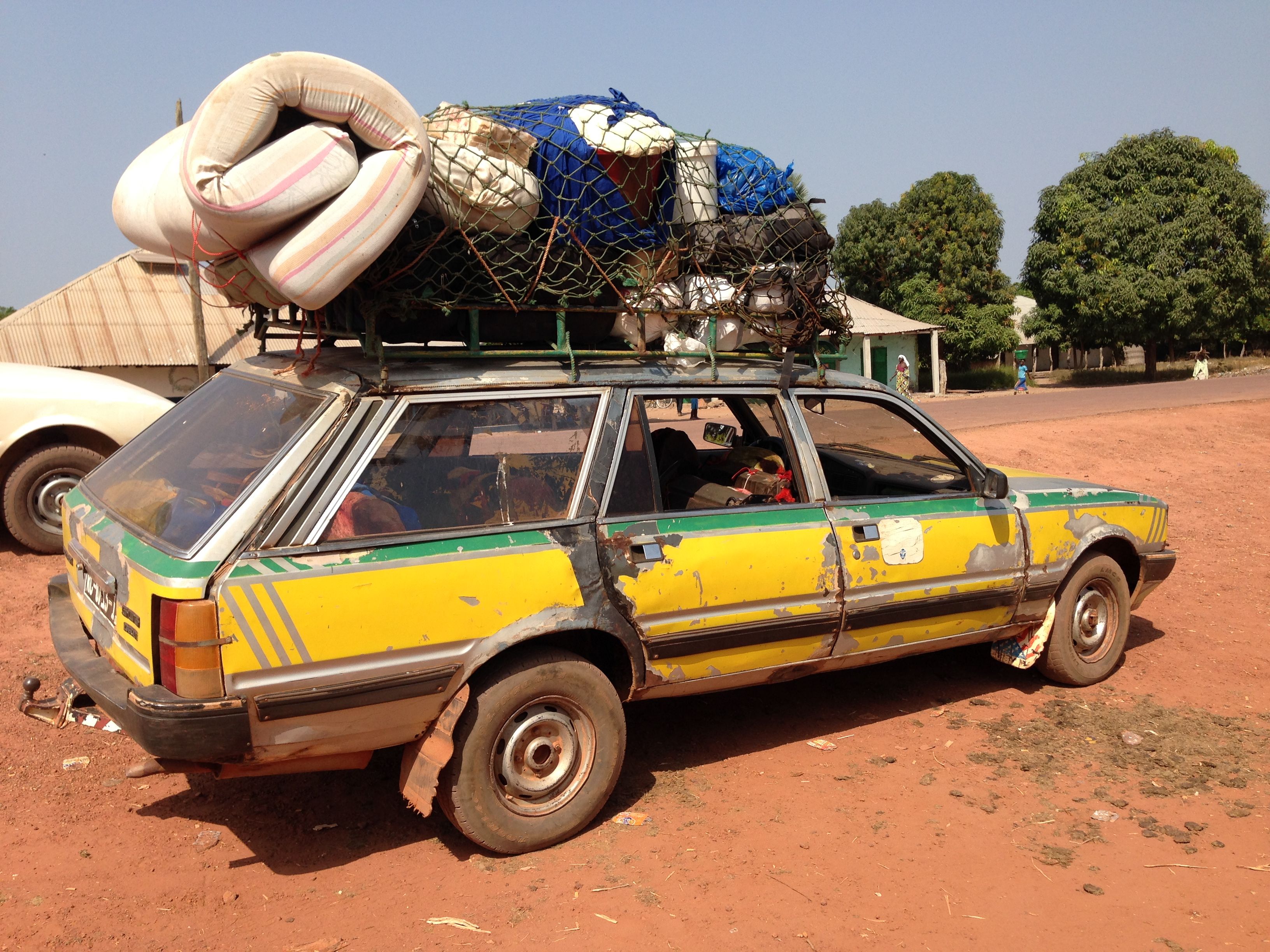
In a decomposing station wagon carrying 14 people with an unlikely assortment of luggage including a rolled-up mattress tied to the roof, we proceeded to off-road rally for 250 kilometers on the worst road either of us has ever seen, anywhere. All the windows were open (we were just glad there was actually a windscreen, we’d seen cars without) and red dust from the road flooded in, matting our hair and choking us all.
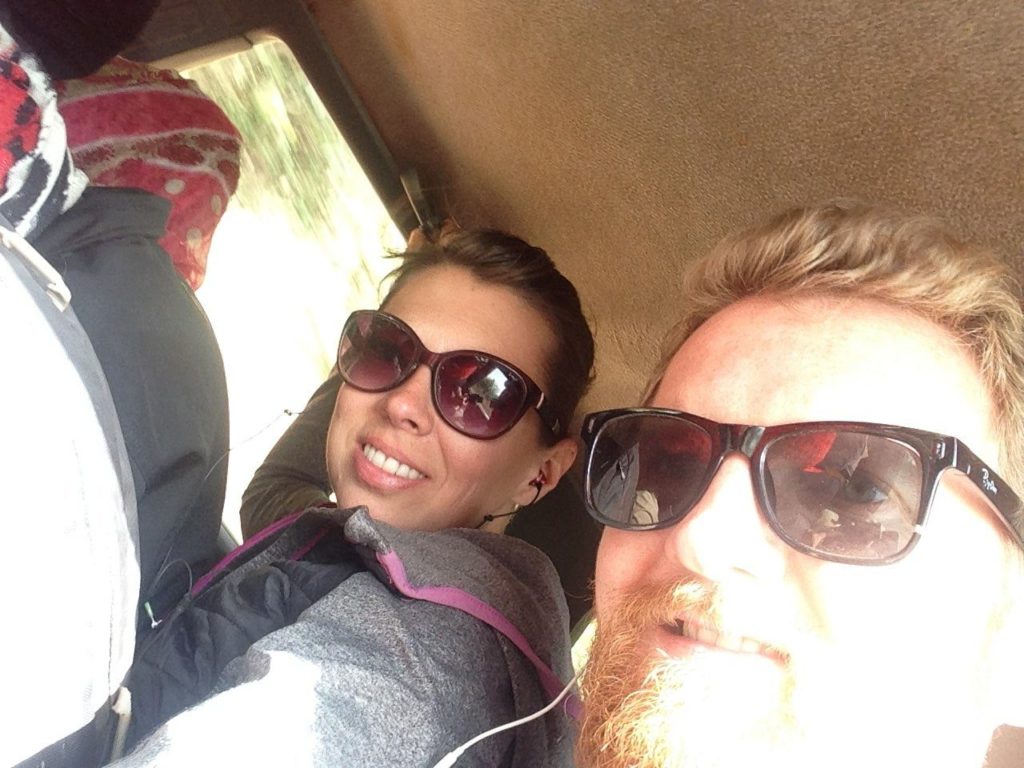
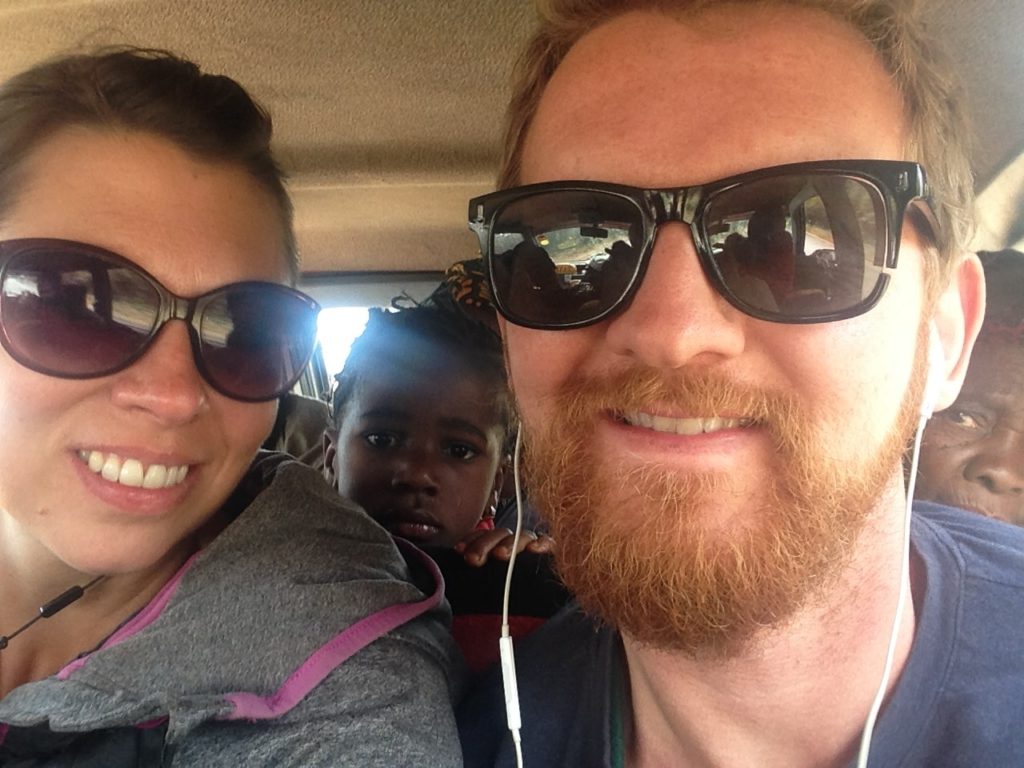
We arrived at a deserted station in Labe eight and a half hours later. It was late, and the town was asleep, so the driver ordered us to sleep ‘dans la voiture’ (in the car), along with his loudly snoring assistant. As far as I know, the driver slept on a bench nearby.
We woke up stiff and chilly at dawn.
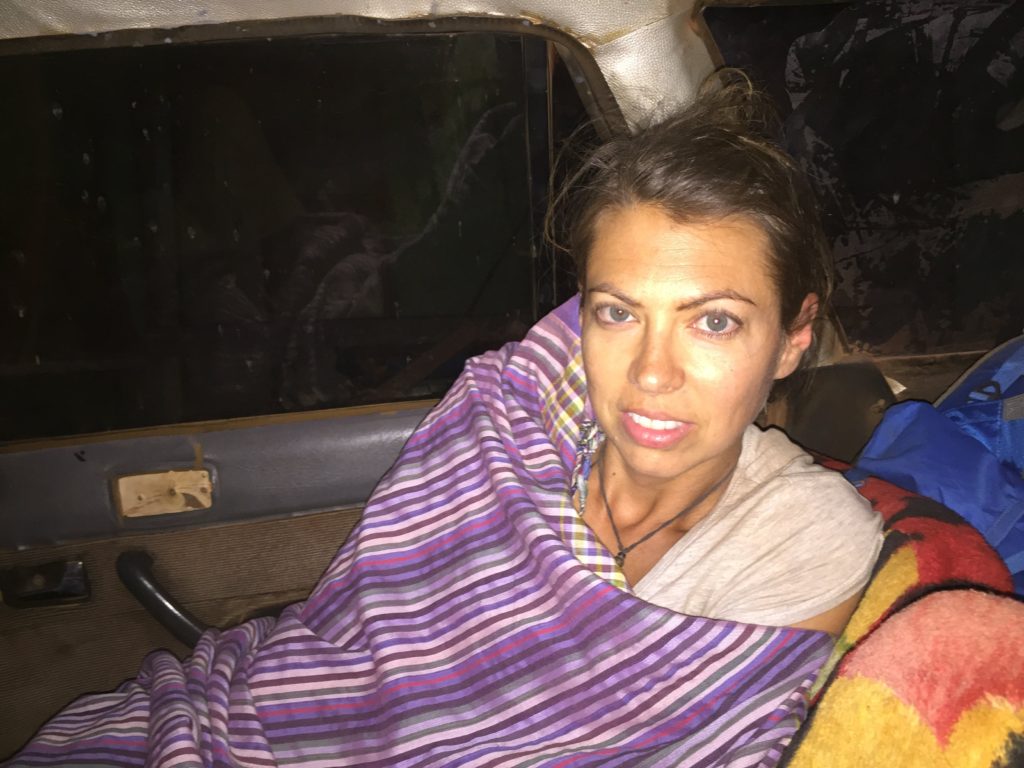
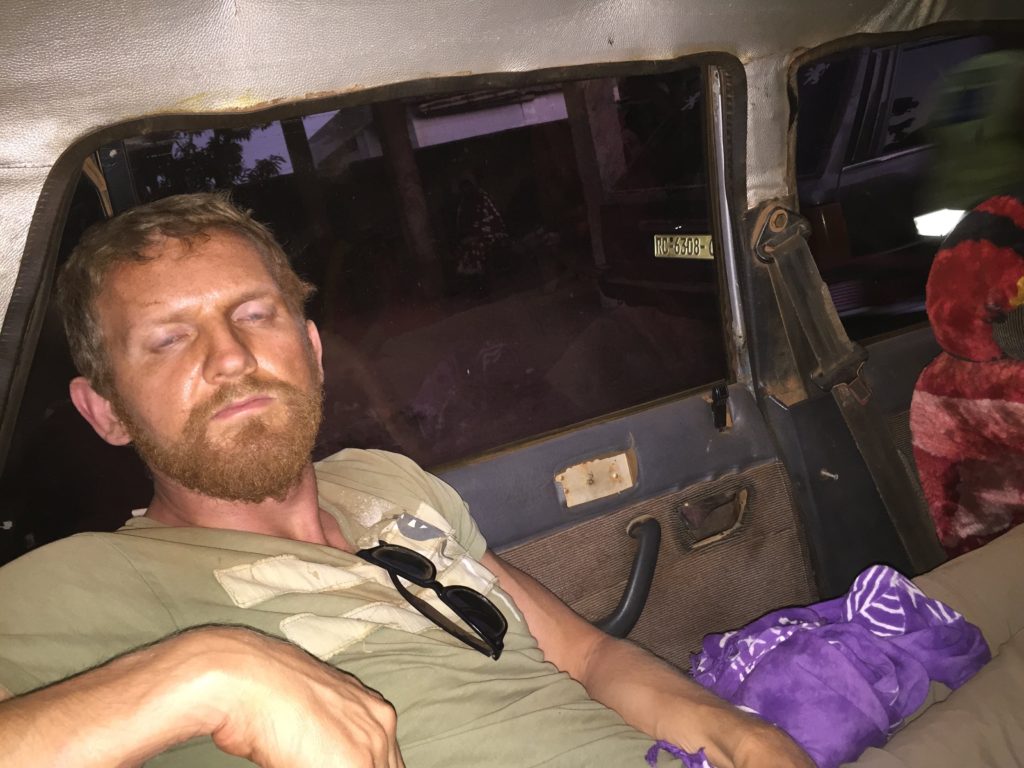
I blew something black out of my nose. Oyv rubbed the red grime around his eyes and peeled them open. He blinked a few times and then said to me, ‘This is ‘special interest travel’.’
We staggered out of the car and up the road, where we found a clutch of motos (motorcycles operating as taxis). Hopping on the backs of two bikes we went to a guesthouse we’d read about in an ancient Lonely Planet.
We spent half a day recovering here and then went to explore the town.

The next day we hired two moto-drivers to take us to Chutes de Saala, a gorgeous waterfall where we sat on the rocks and watched the water tumble over the cliffs, breathing the clean green air after all the smog and fumes of town and travel.

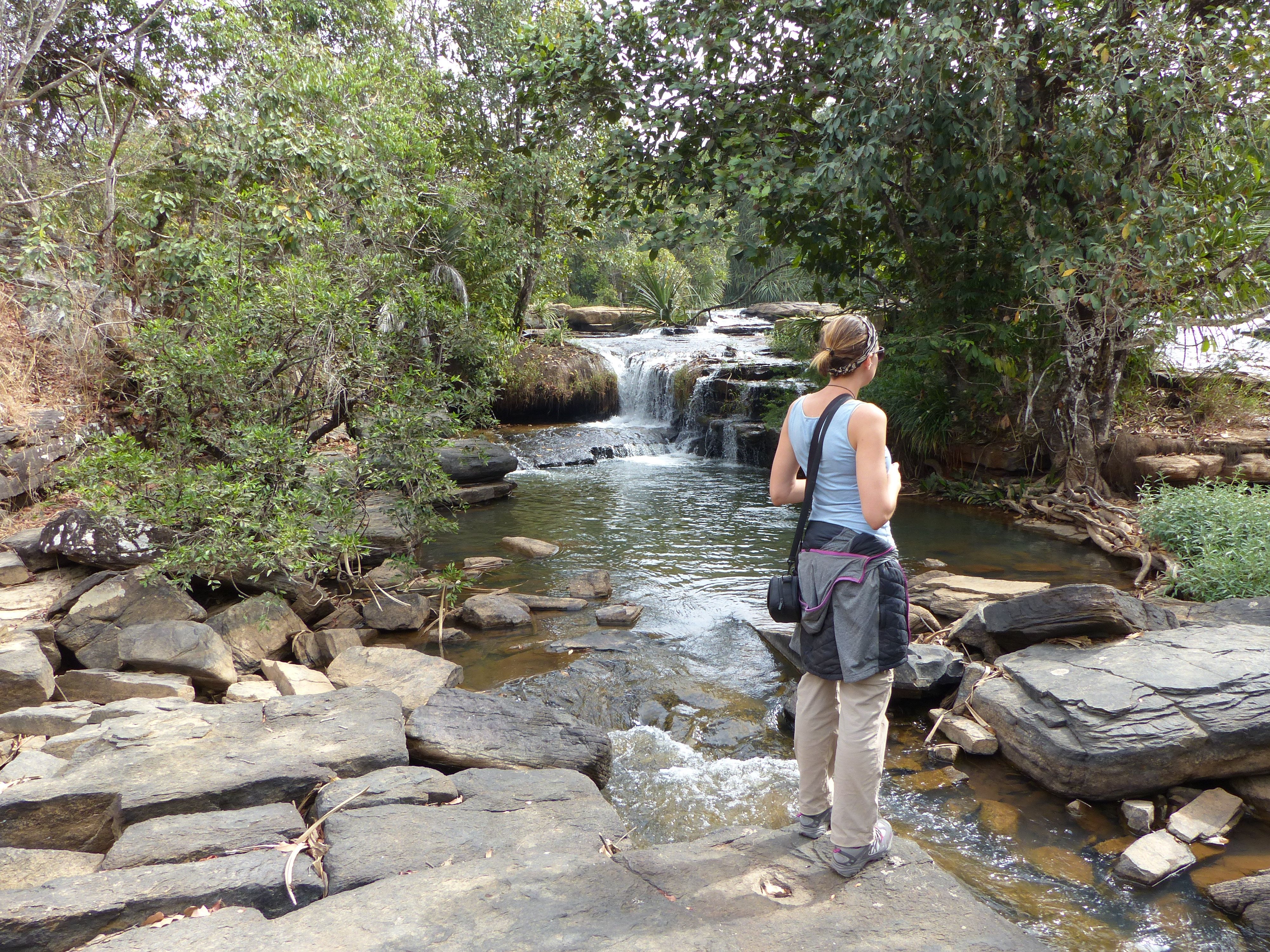
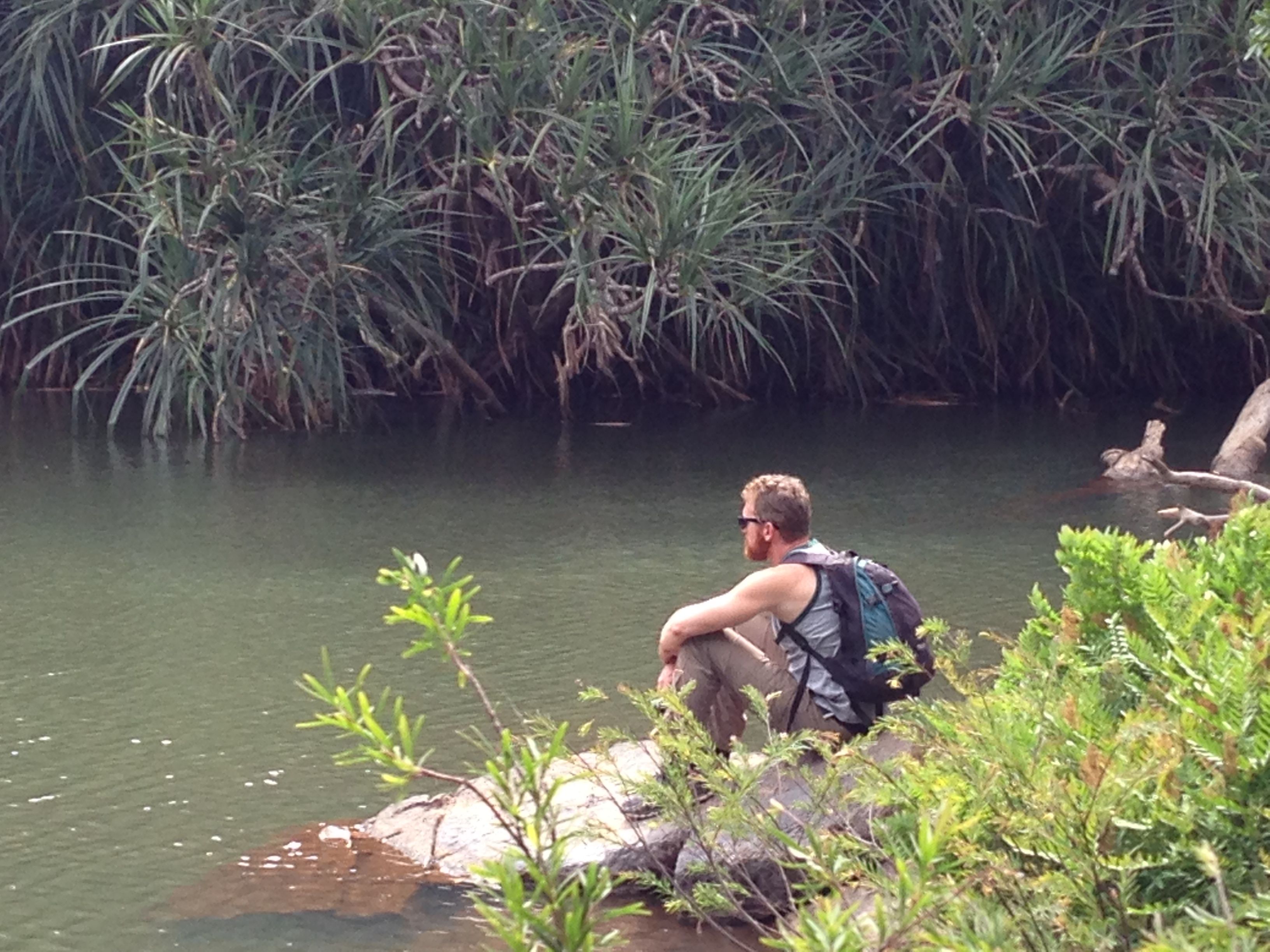
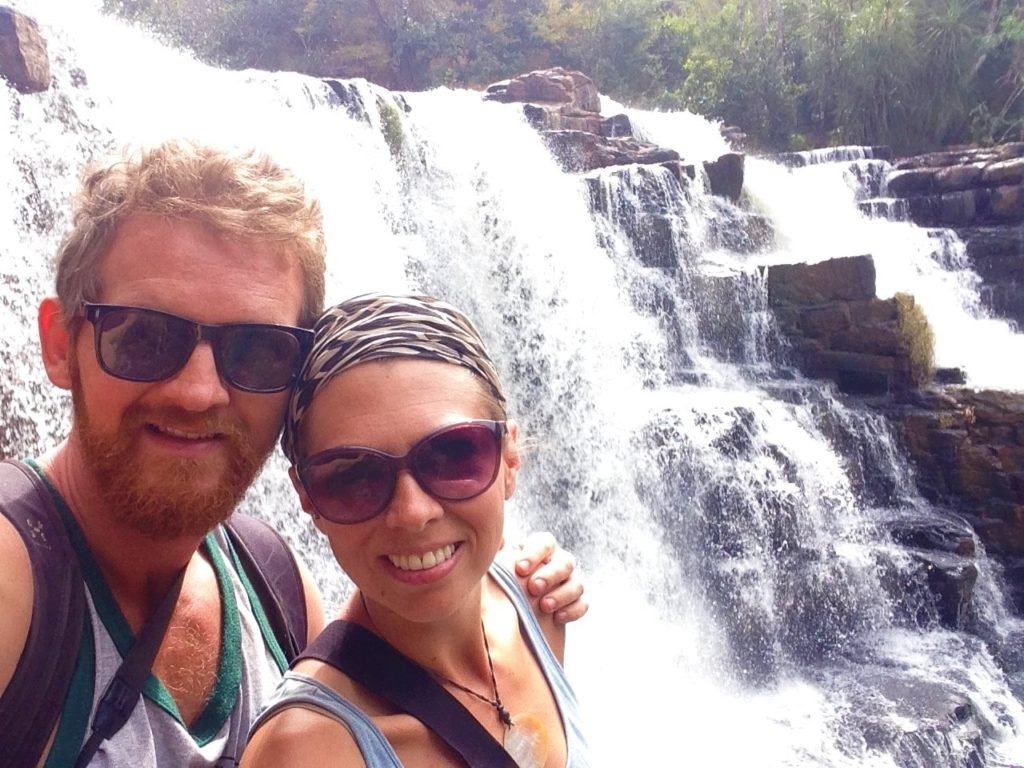
There are very few travellers in Guinea. We didn’t find a guidebook on the country. Lonely Planet didn’t even include a few pages on it in its latest West Africa compilation guide. Back in the 1950s France offered all of its colonies the choice of independence, or to form part of a Franco-African community. Guinea was the only one that chose to go it alone. France granted independence with a vengeance. They pulled out all colonial administration and infrastructure almost overnight, leaving the fledgling nation in crisis. It has been plagued by inept leadership, corruption and poverty ever since.
Road travel here is nothing short of ridiculous. Chickens are a vital travel accessory – almost no one leaves home without at least one in hand. Multiple passengers ride on the roofs of decrepit vehicles already overflowing with human cargo.

Goats and sheep are regularly lashed down with nets on the roof racks. Chickens tied at the feet dangle from windshield wipers.


We saw a live, nearly full-grown cow in the trunk of a hatchback.

Our motive in going to Guinea was basically that it stood between us and Sierra Leone. To fly from Guinea-Bissau was convoluted and expensive. And we love the adventure of overland travel – even in Guinea. But it is definitely a special interest.
Read More
Check out the rest of my stories from the road, for more of our adventures (and misadventures) in Guinea-Bissau and Guinea.
